
THE VOICE OF INTERNATIONAL LITHUANIA
|
VilNews has its own Google archive! Type a word in the above search box to find any article.
You can also follow us on Facebook. We have two different pages. Click to open and join.
|
News
Estonian production up 31% in one year!
- Posted by - (0) Comment
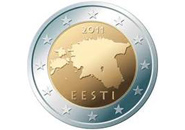
In February 2011 companies operating in Estonia produced 31 percent more industrial goods than the year before, which is by far the largest growth in the European Union, according to Eurostat.
The closest competitor in goods production increase was Sweden (16 percent) followed by Lithuania (14 percent) and Germany (13 percent).
In February all EU member states managed to keep their production growing compared to the same month a year before, with the smallest increase registered in Holland (0.4 percent) and Denmark (0.5 percent).
Compared to January, the avarage industrial production growth in February was 0.2 percent for the EU, while in the Eurozone it was 0.4 percent.
Statistics also showed that compared to the same period of 2010 the production of industrial goods in the EU rose by 7.3 percent while the increase in the Eurozone reached 7 percent.
Source: http://news.err.ee
- Bookmark :
- Digg
- del.icio.us
- Stumbleupon
- Redit it
Belarus authorities speculate that extremists or a lone psychopath may be behind the attack
- Posted by - (0) Comment
![]()
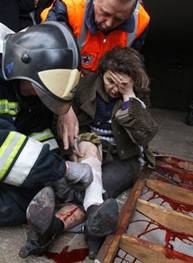
AP
AFP
Belarus authorities have arrested a man suspecting of planting the bomb on the Minsk metro that killed 12 people in the worst attack in its post-Soviet history.
Authorities have speculated that extremists or a lone psychopath may be behind the attack but have so far failed to offer conclusions two days after an attack that stunned a country completely unaccustomed to a strike on this scale.
Twelve people were killed and 200 injured in the attack, which was caused by a bomb apparently set off by remote control placed in a bag at a metro station close to the headquarters of autocratic president Alexander Lukashenko.
Advertisement: Story continues below
Deputy prosecutor Andrei Shved said police had arrested two suspects, including a man suspected of planting the bomb at the station.
Shved did not make clear when the men were arrested or if their arrest came after that of three men detained a day earlier.
"The first confessions have been obtained," he said, quoted by the Interfax-Zapad news agency.
"With a great deal of probability we can assume that one of the detained is the perpetrator," Shved added, pointing to video evidence from the Oktyabrskaya station of the Minsk metro where the bomb went off.
"On the video footage it is clearly visible how the suspect gets off a train at Oktyabrskaya, stands on the platform, leaves a bag behind on a bench and leaves, fiddling with something in his pocket.
"After that, the explosion went off."
A day earlier, the authorities released a picture of a man the KGB said was of "non-Slavic appearance" and was a key suspect. But it was not clear if he was one of those arrested.
Belarus KGB chief Vadim Zaitsev denied speculation that the bomb appeared to have been an amateur operation, saying it contained a large amount of metallic objects aimed at causing destruction.
In a sign of the authorities' uncertainty about the motives for the blast, Zaitsev said three versions were being examined - a bid to destabilise the country, a plot by extreme youth groups and an action by a lone psychopath.
- Bookmark :
- Digg
- del.icio.us
- Stumbleupon
- Redit it
Israeli terrorism experts arrive in Minsk
- Posted by - (0) Comment
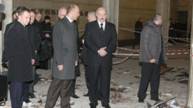
Belarus President Alexander Lukashenko looks at blast site inside the Oktyabrskaya subway station in Minsk, Belarus, Monday, 11 April. (AP / Andrei Stasevich, Belta)
A special group of Israeli experts, composed of seven people, arrived in Minsk today morning to assist the Belarusian authorities in investigating the terrorist attack, occurred at "Kastrychnitskaya" station in Minsk subway on 11 April. The Israeli delegation includes medical experts, experts in the field of combating terror, the police experts to identify the mortal remains and the representatives of the General Security Service.
- Bookmark :
- Digg
- del.icio.us
- Stumbleupon
- Redit it
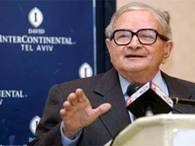
Former agent of the Israeli intelligence service Mossad, a member of the government and current adviser to Israeli Prime Minister of Pensioner Affairs, Rafi Eitan, arrived in Belarus the same day the blast took place. Representatives of the Israeli Embassy have told the Belarus newspaper ‘Telegraf’ that the former Israeli Minister is on a private visit.
Rafi Eitan was born in 1926 in Israel, Kibbutz Ein-Herut. He served in Palmach, first worked in the General Security Service (Shin Bet), and then in the foreign intelligence (Mossad), where he headed the Operations Department.
Rafi Eitan is banned to enter the U.S. territory since he was implicated in the recruitment of an Israeli agent in the U.S. Navy. According to ‘Telegraf’ the former minister maintains good relations with Cuba.
- Bookmark :
- Digg
- del.icio.us
- Stumbleupon
- Redit it
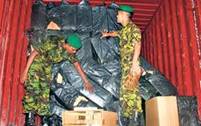
European Union authorities say that they have arrested nine people in Lithuania for attempting to smuggle tens of millions of cigarettes to several countries.
Law enforcement from Poland, Germany, and Lithuania seized 70 million cigarettes in the sting operation, “preventing losses of 6 million euros (US$8.6 million) to the European taxpayer,” the EU’s Anti-Fraud Office said Monday.
The nine suspects were allegedly smuggling the contraband from Ukraine and Russia to other European countries. They are now being detained for three months and will await trial in Lithuania.
The Anti-Fraud Office said that cigarette smuggling costs European taxpayers 10 billion euros (US$14.4 billion) a year
http://www.theepochtimes.com
- Bookmark :
- Digg
- del.icio.us
- Stumbleupon
- Redit it
Eastern-Europe, after the first romance
- Posted by - (1) Comment
by KR Slade
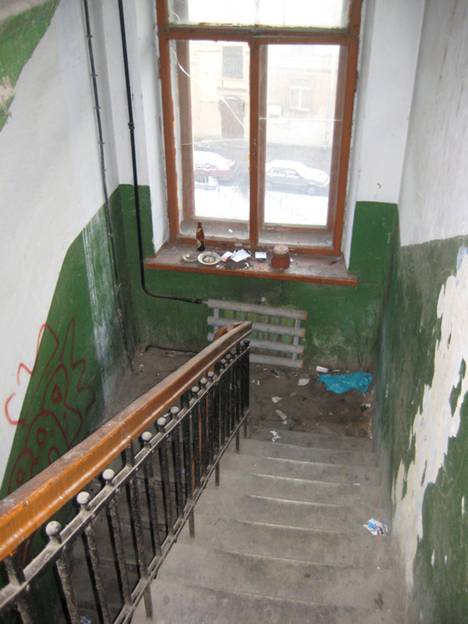
Photo: http://englishrussia.com/index.php/2009/07/17/kommunal-apartments-in-russia/
‘Eastern-Europe – after the first romance’ by KR Slade
After one or two years in Eastern-Europe, sometimes one might hear, “there is nothing else quite like …”:
— noticing that everything available for sale is always junk, always from China, that is always junk . . .
— trying to understand how to use an expensive, German-designed vacuum cleaner; to make us more thankful that they did not win the last two World Wars . . .
— cooking on a kitchen gas-stove from Russia with heat controls that function either ‘on’ or ‘off’, and nothing-in-between . . .
— wrestling with an old refrigerator from Minsk that makes us be nice with all of our neighbors, in the hope that someday some necessary six of them will help us lift it so we can finally throw it out . . .
— driving an automobile made in France; to appreciate the concept of ‘bass-ackwards’ . . .
— examining a Soviet-era potato-peeler, or can-opener; to make us wonder how they could possibly have built nuclear weapons . . .
— buying an ‘assemble-it-yourself’ desk from Poland, and the store’s display sample looks nothing like the pictures on either the box or in the directions . . . and when it is finally assembled, it looks nothing like any of the foregoing . . .
— choosing a canned-ham from Denmark, to thank God that we don’t have to smell pigs in our own countryside . . .
— deciphering a computer program in Lithuanian, an ancient language, but currently being adapted to technology; the new Lithuanian technical words that even the Lithuanians do not understand; to make us wonder why the murder-rate of philologists is not higher . . .
— driving a new Italian automobile faster, and faster; because it is going to fall-apart very, very soon . . .
— using a Communist toilet, obviously designed by someone who had a cousin who was director of a toilet-brush factory that was ordered by the Central Planning Committee to increase sales . . .
— having the luxury of a washing machine, but from Sweden, with all 16 options clearly labeled: in Swedish . . .
— carrying many coins with a value of a fraction of one North American cent . . .
— getting holes in pants-pockets from so-many coins, and so-many door keys: so-intricate, so-wide, so-thick, so-heavy, and so-long . . .
— opening beer bottles without twist-off caps; but learning to open them with a cigarette lighter (at $.20US, but that lights only 20 times), or a coin, or anything else handy . . .
— eating food that has names that have no translation in the English language . . .
— shopping for the Tylenol-equivalent, but not buying it at $0.0253US, because we know another place where it is $0.0203US; tomorrow, when we may be near that other cheaper place, perhaps; or next week when I will see my cousin who lives near there . . .
— learning that in the entire country, the internet is not working; today; all day; maybe tomorrow; or maybe not . . .
— realizing that the electricity stopped today; four times, up to an hour each time, in the entire city-block . . .
— remembering that there was no hot water for 5 consecutive days, in each of the 5 places that I have lived in the last 15 months; but there was no cold water for only 2 consecutive days in each place, although more frequently . . .
— living with ‘centralized heating’ (provided by the city to all buildings) that is turned-on only after three-consecutive days when the temperature has been so cold as to have required heat; but it takes 2 days to feel the heat after it is turned on at the central production facility . . .
— learning that everything takes longer than we thought it could possibly take … far longer … and then still-longer to almost complete … until finally at near-completion, the original plan is no longer valid . . .
— visiting a law court (as a spectator) and wondering if we’re are not in a theatre, watching some clown dressed-up as a judge, who couldn’t get a job in legitimate theatre because he is such a bad actor . . .
— turning-on the TV to one of the three channels and watching “Mr.-Ed-The-Talking-Horse”, a sitcom from the 1960’s, dubbed with one voice speaking all of the characters (including the horse, of course), in some Slavic language, with subtitles obviously in another Slavic language . . .
— sleeping the not-so-dark but long-winter nights that end at 9am and begin again before 4pm . . .
— looking out the window anytime of year and trying to remember how many weeks that it has been since we last saw the sun . . .
— carrying an umbrella on one of the few beautiful sunny days; so it will not rain . . .
— going to the food market to buy sugar, reading the label in six languages that I do not understand and the next morning with my coffee realizing that I bought salt . . .
— knowing 100 times a day that Stalin still lives and is minded, in the minds and lives of most, if not all . . .
— seeing buildings that are not old until they’re older than 500 years . . .
— being where your ancestors were born, walked, prayed, worked, and died since 2,000 years ago . . .
— looking in the mirror at myself after I get out of the shower and knowing that I never-before looked this good . . .
— being every day with the nicest people whom I’ve ever encountered . . .
— enjoying great beer (and that’s cheaper than Coca-Cola) . . .
— being with the most-beautiful people that I’ve ever seen, and speaking with many, many times, every day . . .
— surfing the internet today and seeing the photo of one of my flat-mates; she’s now called ‘a defender of freedom’ for what previously was called ‘anti-Soviet activities’, having been exiled to Siberia, twice . . .
— And the romance remains . . .
- Bookmark :
- Digg
- del.icio.us
- Stumbleupon
- Redit it
Belarus seeks answers over deadly metro bombing
- Posted by - (0) Comment
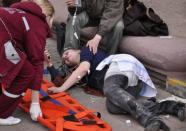
By Valery Kalinovsky (AFP)
MINSK — Belarus on Tuesday sought to identify the perpetrators behind the bombing on the Minsk metro that killed 12 and wounded 150, the first major apparent act of terror in its post-Soviet history.
The explosion at a busy metro station in the heart of the Belarussian capital near the headquarters of President Alexander Lukashenko stunned a city which has never seen attacks like those suffered in neighbouring Russia.
Authorities described the attack as an act of terror and Lukashenko implied that foreign forces may be responsible. But officials seemed for the moment at a loss to explain who was behind the attack.
"As of 2:30 local time (23:30 GMT), the number of dead reached 12 people, six of whom have been identified," the country's security service, still known by its Soviet acronymn KGB, said in a statement, raising a previous toll of 11.
A total of 149 people needed medical treatment, 22 of whom are in a serious condition, and 30 of whom have injuries of medium severity, the KGB statement said.
- Bookmark :
- Digg
- del.icio.us
- Stumbleupon
- Redit it
„March of Living“– in memory of Holocaust victims, Paneriai (Ponary) Memoriam, 2 May at 14:00
- Posted by - (0) Comment
![]()
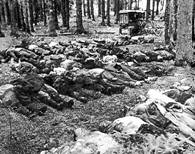
Jewish victims of execution before the mass burial at Paneriai (Ponary), Vilnius, 1943.
On 2 May in an honourable memory of Holocaust victims „March of Living” will be held.
The march will go from the Paneriai train station to the Paneriai Memoriam – this is the road section that was walked by prisoners of Vilnius Ghetto before they were killed in the Paneriai woods during Holocaust in Lithuania.
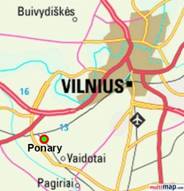
The march will start on 2 May at 14:00 at the Paneriai (Ponary) train station.
The organizers and participants of the march are the prisoners of Vilniaus Ghetto and their families from Israel; Ghetto prisoners from Vilnius; Official representatives of Lithuania and Israel, Lithuanian schoolchildren and students, representatives of Christian organizations, members of Vilnius Jewish Community and non-governmental organizations.
We invite all people of good will to take part in the March of Living as support for the Holocaust victims and their families.
The official license for the march was given by Vilnius municipality.
- Bookmark :
- Digg
- del.icio.us
- Stumbleupon
- Redit it
![]()

American-Lithuanian Ruta Sepetys is a very successful book author, and also a writer for VilNews. Her new book, Between Shades of Gray, about a Lithuanian family deported to Siberia in 1941 is now becoming a world bestseller. The book is being published in over twenty countries around the world, including Lithuania. For more information please visit: www.betweenshadesofgray.com

Here is Ruta’s own story, written exclusively for VilNews:
”The crimes of Hitler and the Nazi’s are well known, but many are unaware that Joseph Stalin killed over twenty million people during his reign of terror. Yet amongst the older generation in Lithuania, Stalin’s words still hang like a cold shadow – “Death is the solution to all problems,” said Stalin. “No man–no problem.”
In 1939, the Soviet Union occupied the Baltic States of Lithuania, Latvia, and Estonia. Shortly thereafter, the Kremlin drafted lists of people considered anti‐Soviet who would be murdered, sent to prison, or deported into slavery in Siberia. Doctors, lawyers, teachers, military servicemen, business owners, musicians, artists, and even librarians were all considered anti‐Soviet and were added to the growing list of wholesale extermination. The first deportations took place on June 14, 1941. But outside of the Baltics, few knew what was occurring and Stalin’s rampage remained shrouded in silence.”
To read more, go to Section 10 – HISTORICAL LITHUANIA
- Bookmark :
- Digg
- del.icio.us
- Stumbleupon
- Redit it
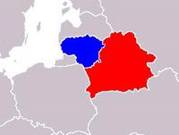
VILNIUS, 7 April (BelTA) – The Foreign Ministry of Lithuania has denounced the plans of the European Union to impose sanctions on Belarus, BelTA has learnt.
The document submitted by the Foreign Ministry of Lithuania to the government in the run-up to the meetings of the EU foreign ministers, says that Lithuania disapproves of economic sanctions that can hit the people of Belarus.
The Lithuanian Foreign Ministry deems it necessary to analyze more thoroughly the objectives and repercussions of such measures, their compliance with the rules of morality and the mechanism of their withdrawal in case the situation changes. The Lithuanian Foreign Ministry suggests that the European Union should help the Belarusian society to become more open and to this end it should launch negotiations on the simplification of the visa regulations with Belarus.
- Bookmark :
- Digg
- del.icio.us
- Stumbleupon
- Redit it
Gazprom says to take Lithuania to court, will win
- Posted by - (0) Comment
![]()

Gazprom intends to take the Lithuanian government to court over the situation with the country's gas importer and pipeline operator Lietuvos Dujos, and expects to win, the Russian gas giant's deputy CEO, Valery Golubev, says.
Lithuania's Energy Ministry thinks Gazprom has breached an agreement on the privatization of Lietuvos Dujos, in which Gazprom owns 37.06% of the shares, as it has supplied gas to the republic not "at fair prices."
"We'll go to court, and they'll lose. They'll lose in any court. There's been no breach of obligations [by Gazprom]. The Lithuanian government approved the price formula in 2008, before the Third Energy Package came in. We haven't done anything to put Lithuania in a worse position in 2009 and 2010," Golubev said.
Read more at: www.kyivpost.com
- Bookmark :
- Digg
- del.icio.us
- Stumbleupon
- Redit it
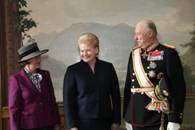
President Dalia Grybauskaitė at the Norwegian Royal Palace, where she met with King Harald V and Queen Sonja
After the meeting with the Royal Family, the President gave a lecture ‘Energy Geopolitics: Reasons and Achievements of Nordic-Baltic Cooperation' in the Norwegian Institute of International Affairs, dealing with geopolitical aspects of energy-related problems in Europe and underlining the need and mutual benefit of promoting active cooperation with Norway and other Nordic countries. The President also answered questions put by the students, the professoriate and guest experts.
"By this first state visit to Norway I wanted to underline and draw attention to the fact that the Northern dimension is one of Lithuania's foreign policy priorities and that our relations with Northern Europe are acquiring a shape of a very concrete and productive dialogue. Lithuanian-Norwegian relations are a perfect example of cooperation based on interests of the two peoples. Norway's political and financial support to Lithuania is very valuable and we have very good prospects of cooperation in the field of energy," President Dalia Grybauskaitė said.
Grybauskaitė also had a meeting with the President of the Storting (the Parliament) and Norway's Prime Minister Jens Stoltenberg.
During the visit, memorandums of understanding concerning the implementation of the Norwegian and the European Economic Area (EEA) Financial Mechanisms 2009-2014 providing for support in the amount of 84 million euros to Lithuanian projects, and a bilateral agreement concerning the transfer of sentenced offenders to serve sentence in their home country were signed.
Sad to see, though, that Norwegian media hardly have mentioned the visit.
- Bookmark :
- Digg
- del.icio.us
- Stumbleupon
- Redit it
![]()
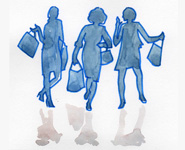
In February 2011, compared with January 2011, the volume of retail trade fell by 0.1% in both the euro area (EA17) and the EU27. In January retail trade rose by 0.2% and 0.4% respectively.
Among the Member States for which data are available, total retail trade fell in eleven and increased in ten. The largest decreases were observed in Slovenia (-1.3%), France (-1.1%) and Belgium (-0.8%), and the highest increases in Lithuania (+2.2%), Malta(+1.8%) and Estonia (+1.6%).
In February 2011, compared with February 2010, the retail sales index grew by 0.1% in the euro area and by 0.9% in the EU27.
In February 2011, compared with January 2011, “Food, drinks and tobacco” remained stable in both the euro area and the EU27. The non food sector decreased by 0.1% and 0.4% respectively.
In February 2011, compared with February 2010, “Food, drinks and tobacco” fell by 0.5% in the euro area and by 0.9% in the EU27. The non food sector increased by 0.9% and 2.4% respectively.
Among the Member States for which data are available, total retail trade rose in thirteen and decreased in eight. The highest increases were observed in Poland (+12.6%), Luxembourg (+8.8%) and Lithuania (+6.1%), and the largest decreases in Spain (-5.6%), Romania (-4.8%) and Portugal (-4.5%).
These first estimates come from Eurostat, the statistical office of the European Union.
- Bookmark :
- Digg
- del.icio.us
- Stumbleupon
- Redit it
Poll shows major drop in support for nuclear power in Lithuania after Fukushima catastrophe
- Posted by - (0) Comment
By: The Associated Press
A new poll shows nearly half of Lithuania's population have turned against nuclear energy following the catastrophe at a Japanese reactor.
A poll for Lithuanian magazine Veidas released Monday showed 88 per cent of Lithuanians, traditionally supportive of nuclear power, now oppose plans to build a new power plant — an increase of 47 per cent since January.
Some 42 per cent of those polled said the Fukushima Dai-ichi disaster had made them change their minds.
The March 28-30 poll surveyed 500 people and had a margin of error of 3 per cent.
Lithuania was one of the world's most nuclear-energy dependent countries before it closed its Soviet-era plant in Ignalina and has over some time been planning to build a new nuclear facility.
- Bookmark :
- Digg
- del.icio.us
- Stumbleupon
- Redit it
![]()
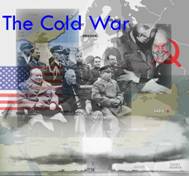
Selected reports from the press in central Europe
WARSAW
Gazeta Wyborcza:
Poland-Lithuania relations reach new low
Relations between EU members Poland and Lithuania have been soured by legislation in Lithuania that, according to Poland, will worsen public education opportunities for the Polish ethnic minority there.
Rzeczpospolita:
World Jewish Congress calls for Poland boycott
Until Poland adopts property restitution laws allowing its former Jewish citizens to regain their real estate lost during and after World War II, the Jewish community should stop buying Polish products or visiting the country as tourists, said Menachem Rosensaft, chief lawyer of the World Jewish Congress. The Polish government said the country’s former citizens can use existing legal possibilities, petitioning courts and the public administration to regain any property they lost.
Read more at:
http://blogs.wsj.com/new-europe/2011/03/31/from-the-headlines-march-31-2011/
- Bookmark :
- Digg
- del.icio.us
- Stumbleupon
- Redit it
How did you get over there, to Lithuania?
- Posted by - (1) Comment
by KR Slade

Village Chief’s house
{Responding to two (2) E-mails, received on the same day of spring 2006. One from a former classmate from my university graduate-school (Boston, Massachusetts), whom I’ve not seen in 35 years . . . who probably has no idea where is or what is Lithuania . . . The second from an old political protégé (Ottawa, Canada), from my days working with Canada’s Official Languages groups, whom I’ve not seen in 6 years . . . who probably has no idea where is or what is Lithuania . . . }
………………………………………………………….…………………………
Subject: How did you get over there?
I joined our Alumni network and pulled up a list of graduates from the 70’s years. Boy, was I surprised to see your email address and even more surprised to see your location. What are you doing in Lithuania, there?
. . .
Take care. It is good to know what Alumni are up-to these days !!
How did you get to way over there to Lithuania ??
Dianne
Rhode Island (USA)
……………………………………………………………………………………
Subject: How did you make your journey to Lithuania?
Dear Ken,
It has been a very long time since we have communicated ! I found your coordinates on a Canadian government website.
Here in Canada, we . . .
I thought of you the other day. I read that Lithuania has become a member of the European Union. But I thought that European Union was for only countries in Europe.
. . .
So please tell me about your trip to Lithuania.
Yours truly,
John
Ontario (Canada)
…………………………………………………………………………………….
Dear Dianne and John,
I write to both of you because I received your e-mails on the same day . . . although you do not know each other, I think that you are both asking me the same question: about ‘where is Lithuania’, and ‘how did I get here’.
John — what a nice surprise to hear form you ! I think that it must be some half-dozen years since we have last met, with our work for the government of Canada, in Ottawa, when we both preferred the French restaurants in Hull; eh?
Dianne — what a nice surprise to hear from you ! And after all these years — more than 35 !!! Your town, there, in RI . . . is 4-miles-south from where I was born and grew up; and 20-miles-north of where I lived and practiced law for 15 years, before I moved to Québec City, Canada. Two-and-a-half years ago I came to Lithuania. I be writer [J)], and I ‘re-teach’ English-language to some people who think that they can speak/write/teach English . . .
You both ask: “how did I get all the way over to LT ?” Well, I remember my trip, as if it were yesterday; it was quite the voyage . . .
There was the 11-hour plane ride, to cross the Atlantic Ocean. But once on this ‘new’ side, because LT is so far from any ‘other place’ (there are still no direct flights to here, from anywhere !) — it took at least another 11 days (I stopped counting then), going to smaller and smaller cities . . . then towns . . . then villages. But, of course, some of these smaller landing strips, in farmer’s fields, do not have daily, or even ‘regular’, airplane service; so, we had to wait a day-or-two between stopovers, to try to convince some small-plane pilot to fly in this direction.
Unfortunately, the stress of travel and deprivations caused some family problems. The wife and kid had been constantly complaining for more than a week. Nag, nag, nag; and cry, cry, cry. Finally, I could not stand it any longer. I went to the local market place to find some peace and alcohol. There I met a very friendly and accommodating chap, who was knowledgeable in all kinds of affairs.

A friendly local
I told him about my problem and he promised a quick and mutually profitable resolution. A few days later when I woke up in his cousin’s marketplace vegetable wagon, my new friend told me that he had solved the problem. We went to his other cousin’s barn. I do admit that I was somewhat surprised at first. The wife and kid had been bronzed. At least this solution was more civilized than having to sell them to the headhunters. It was such a good job technically, since they seem so life-like, that we were able to sell the statue-set to a distant tourist resort, at a tidy profit. Apparently, this is common in these parts, where history precedes the Bronze Age.

When I landed at the final outpost of civilization, I needed to rest for a few days . . . because of the changes in altitude, food, and water, and my total travel-fatigue. The second night, in my room — in what they called ‘a hotel’, I could not read the very foreign-language sign on the window; so I opened it for the night, not knowing that this was a very dangerous thing to do.
The next morning I was very sick. A doctor came, after a few days, and he said that I may have suffered an historical ‘ethnic-déjà-vu’ attack: by a Livonian, or Prussios, or Svedas, or Rus invasion. He did not know precisely which illness, so he gave me the Native’s Samagonas medicine for all-four afflictions. I had a delirious ‘fever’ for many days (I never did learn actually how long), but then one day I woke up and I was completely well. So, I continued my journey towards Lithuania.
In the village, I managed to find a man from the perceived-extinct Curonian tribe, who could guide me across the Juozapines Mountains, through the Paksas Pass – which is especially difficult at that particular time of year. The local Natives had said that he had reliably done this transit many times, and that he had two good, but rather old, elephants to make the journey. I had never actually seen a real elephant before, and sitting up there on top was rather disturbing; but he knew that it would be a problem for me. When I complained about the height of sitting up there so high, he laughed ! He told me that this was the SMALL elephant ! (It was a female.)
While I was perched, there in the carriage-basket seat, becoming to my new situation, he brought the other elephant: the male. It was very scary: sitting on top of an elephant, and then looking UP, at another elephant ! My guide loaded all of my baggage and equipment onto the male elephant. We began what was to be our 18-hour journey over the mountains. What was very providential was the fact that since this time of year was the elephant-mating season, it was appropriate to have the female go first, and not necessary to tie a cord to the other/trailing elephant . . . and our pace was quick.
In the early morning hours, as we were descending the mountain into the Zauskaus Plateau below, there was a terrible accident. Our (smaller) elephant had no problem negotiating a sharp turn on a particularly steep mountain slope. But, the larger male, somewhat more blinded perhaps in his old age, slipped. It was a horrible sight. Worse for us, was the female thereupon galloping down the mountain … to find . . . and to be with . . . her long-time mate . . .
I learned why, when riding an elephant in the mountains, that passengers are tied to the carriage (riding basket, called ‘a coalition’). . . An excited elephant . . . is going to do . . . what an excited elephant wants to do . . .
Once at the bottom of the mountains, at the poor now-dead beast, we finally were able to manage to dismount. It was good to be once-again on firm ground. We unloaded our baggage from the dead male. Although I could not understand the ancient language of my guide, it was obvious that the female was going to remain with her mate; and therefore, it was evident that we were stranded.
The next day, a gypsy caravan passed by, and they accepted us, and all of my baggage, to travel across the Neringa Desert, towards Lithuania. It was a very long, but more exceedingly calm journey. They were nice people, but now I know why it is better to travel by elephant, rather than by camel. Although the perceived interminably long journey through the desert, and then following the long River Will-Not, was uneventful, I came to the politically incorrect opinion that camels are disgusting.
Finally, we came to The Great River Ignominious. There, I was able to obtain the services of a river guide who would take my baggage and me down the river to Lithuania. It was a slow, but very peaceful and lovely trip. The crocodiles were not really a problem, because they are actually very shy – if they are slapped with an oar, they will swim away. But, on the second day, there was the terrible incident of our somewhat-careless raft-helper who fell into the waters. Even before we could throw a rope to him, he was eaten by the swarms of little fishes that devour any living being that enters their watery world. Perhaps you have heard something of this; yes, it is all true; even the movies cannot reflect a real representation of this horrendous event . . .
I finally arrived in the land of Lithuania, then made my way onward, first to Cowness Village, and then further to the capital-village, called Will-Not. I soon settled into a somewhat normal life, relatively speaking. I decided not to live in the capital-village mud-hut houses that surround the Parliament (preposterously called ‘The Same-Us’). I soon found quite suitable lodging in a relatively more-improved dwelling in a mountainside, called Antakalnis, an ancient cave-carved habitat area that was formerly occupied by other writers. From here, I have a very nice view of the tranquil capital-village below, and the presumed-tranquil Ignalina Volcano in the distant beyond.
The people of Lithuania are nice; well, all of the 3.5 million people – except for the Oligarchs Tribe, which has never been more than 5 percent of the population. Lithuania is a peaceful country; well, all of Lithuanian – except for the on-going daily riots in ‘The Same-Us’, but that is only some fourteen-score of persons (and a few thousand of their so-well dispersed comrades), whom will perhaps soon be transferred to a more secure facility, close by, where their scandals will no longer have a monopoly on the news. Crime is low, by north American standards; but, as everywhere, you never know . . . there could be a Mafiosi zany zilch bellicouseness across the street from ‘The Same-Us’, or a related rapacious apprentice/junior-Mafiosi-Wanna-Be on the other side of your wall . . . But, all-in-all, I love the Lithuanians; although, I know that I am genealogically/ethnically prejudiced !
My only luxury is a satellite Internet antenna dish and an electric generator. I’m so lucky that they both work; notably after they had fallen off the elephant, and thereafter also had descended into The Great River Ignominious, where with the help of the Natives, all of the equipment was salvaged, and was able to be repaired, after some months of work.
So, I have e-mail !!!
Please write again soon,
And I hope that you will visit . . .
Bye for now,
K

Dinner at the Village Chief’s house
- Bookmark :
- Digg
- del.icio.us
- Stumbleupon
- Redit it
VilNews e-magazine is published in Vilnius, Lithuania. Editor-in-Chief: Mr. Aage Myhre. Inquires to the editors: editor@VilNews.com.
Code of Ethics: See Section 2 – about VilNews. VilNews is not responsible for content on external links/web pages.
HOW TO ADVERTISE IN VILNEWS.
All content is copyrighted © 2011. UAB ‘VilNews’.

 Click on the buttons to open and read each of VilNews' 18 sub-sections
Click on the buttons to open and read each of VilNews' 18 sub-sections 















.jpg)



